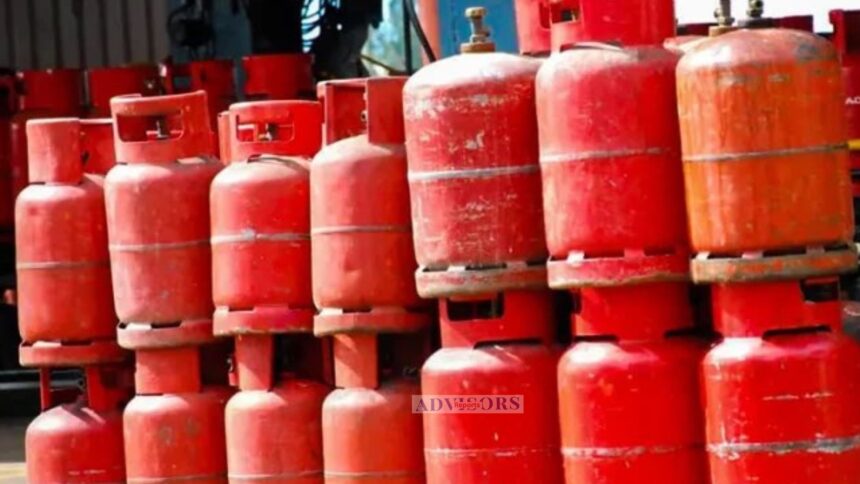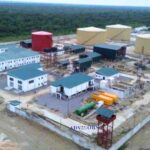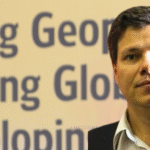… gas bottling plants sell between ₦1,100–₦1,300/kg
… LPG depot prices hit ₦15.8m–₦19m per 20MT between Oct 3–13, 2025
… averaging ₦790–₦950/kg across Lagos and Delta terminals
Precious Ademisoye
Liquefied Petroleum Gas (cooking gas) have soared to between ₦1,800 and ₦2,500 per kilogram (kg) across parts of Lagos and other states, despite depot and gas plant supply rates averaging ₦1,100–₦1,300/kg.
Advisors Reports investigation revealed that the recent surge in Liquefied Petroleum Gas (LPG) prices is linked to gaps in market regulation and supply chain practices that enable price distortions across retail outlets.
Correspondents monitoring the situation across Lagos State, and other states observed instances where some retailers reportedly sell LPG to bulk buyers at irregular hours, a practice that limits access for regular consumers and fuels scarcity perceptions.
While many consumers accuse retailers of profiteering and price manipulation, selling as high as ₦1,800 to ₦2,500 per kilogram despite lower depot rates, some retailers, however, attribute the price hike to rising transportation costs, foreign exchange pressures, and inconsistent product supply from depots.
A retail gas supplier in Alakuko, Lagos, who preferred anonymity, said the current surge in cooking gas prices reflects pure greed, alleging that some sellers are taking advantage of the situation to make excessive profits.
“Anyone selling at that price is a thief. It’s greed that’s killing us,” he said, noting that plants currently supply LPG at around ₦1,200 to ₦1,300 per kilogram.
According to him, despite limited supply, there is no justification for retail prices climbing to ₦2,000 or more per kilogram.
“Most retailers monitor what others are selling and simply adjust upwards. How can someone buy at ₦1,300 and sell at ₦2,000? That’s a profit of ₦700, it’s unfair,” he lamented.
His account was supported by Mr. Egunjobi, a gas retailer in Ijaiye, who explained that fluctuating prices and profit-driven practices among sellers are fueling the ongoing market instability.
“Right now, gas prices are not stable — they keep changing,” he said. “I’m selling at ₦1,600 per kilogram, while others sell for ₦1,500 or ₦1,700.
“I bought from the plant at ₦1,200, but this evening, they said it’s now ₦1,300. The situation keeps changing, and that’s why prices differ from place to place.”
The hardest hit by the situation are everyday consumers, many of whom are struggling to cope with erratic pricing and opportunistic retail practices.
“I bought gas for ₦1,100 yesterday, probably because it was at a filling station — Mobil in Oyingbo, Yaba,” said Yusroh Abolore, a resident of Yaba, noting that prices there appeared slightly lower than at standalone retail outlets.
In Mowe, Ogun State, Mrs. Bisoye Enitan shared a similar experience, recounting how she visited multiple outlets before finding a more affordable option.
“I was told ₦2,000 and ₦2,200 per kilogram in two different places before I finally got it for ₦1,800,” she said.
For Blessing Ime in Surulere, the story was no different. “I bought 1kg for ₦2,000, but the seller said it might drop to ₦1,500 next week,” she explained, reflecting the uncertainty surrounding price stability.
Meanwhile, in Ibadan, Bolu Ajelowo observed a slight price relief. “I bought gas yesterday for ₦1,600. It’s lower now than earlier in the week when it sold for ₦2,000,” he noted.
Confusion, however, continues to reign as prices vary sharply even among outlets located within the same area.
“I bought 1kg of gas for ₦1,500, but right next door another seller was charging ₦1,900 for the same quantity,” said Mrs. Kemi, a resident of Ajah.
“I honestly don’t understand what is happening anymore,” she said.
Despite widespread claims of scarcity by retailers, industry experts believe the situation is largely a case of market manipulation rather than genuine shortage.
DEPOT PRICE
Data obtained by Advisors Reports from LPG Nigeria’s depot pricing records for the period October 3 to October 13, 2025, showed that the cost of 20 metric tonnes (MT) of cooking gas at the depots in Lagos and other parts of the country ranged between ₦15.8 million and ₦19 million.
This therefore translated to an average bulk supply cost of ₦790 to ₦950 per kilogram.
Further analysis revealed that Dangote (Offtaker) offered the lowest rates, between ₦15.8 million and ₦16 million per 20MT, equivalent to about ₦790–₦800 per kilogram.
In contrast, Ardova AP (Ijora, Lagos State) maintained one of the highest yet most stable prices during the review period, selling consistently at ₦18.5 million per 20MT.
Meanwhile, NIPCO (Dockyard Road, Apapa, Lagos), Matrix (Warri, Delta State) and A.A. Rano (Ijegun Waterside, Lagos) were observed to have sold around ₦18.4 million per 20MT, reflecting a depot price of approximately ₦920 per kilogram.
Prudent Oghara,Delta State, on the other hand, maintained the highest recorded rate at ₦19 million per 20MT, translating to ₦950 per kilogram.
Other depots, including Rain Oil, Dozzy, Techno Oil, and 11PLC, recorded no activity within the same period, indicating either low loading operations or temporary supply constraints.
EXPERT
Mr. Godwin Okoduwa, an LPG expert, dismissed allegations of hoarding as inaccurate but admitted that prices remain significantly inflated. “The market situation hasn’t changed. Gas is still being sold for the price of ₦2,000, ₦2,500. Nothing has changed,” he said.
He explained that many frustrated buyers might be mistaking price spikes for hoarding.
“Desperate buyers could term the current situation hoarding because they don’t believe that sellers don’t have gas, but it’s a reality,” he noted.
“We cannot say there is hoarding because why are you hoarding fuel? The LPG business is not really like the petrol business where you hoard goods. In this, price can turn on you.
“What people are doing is maximizing profit and I don’t see how hoarding is a good business model for them when NIPCO and the likes can receive NLNG anytime soon,” Okoduwa added.
He, however, declined to disclose the exact cost of a 20 metric tonne (MT) supply of LPG, stating, “I don’t know the exact amount. It’s probably what you see on the website.”
Meanwhile, major outlets such Petrocam in Lekki Phase 1, in confirmed that they have been out of stock for weeks, with attendants declining to comment on current pricing trends.
“We can’t say the price of something we don’t have. The last time we sold gas was two weeks ago, and it went for ₦1,100 per kilogram. Right now, gas is not available,” an Alma Gas attendant told Advisors Reports.
Similarly, a Petrocam staff member said, “We don’t have gas at the moment. Until the truck arrives, we won’t know how much to sell. It’s been quite some time since we last sold gas.”
Industry observers contend that the prevailing price instability is driven less by actual supply shortages and more by deliberate market manipulation, as some retailers appear to prioritise profit margins over fair practice.
With Nigeria promoting LPG as a cleaner, more sustainable alternative to firewood and kerosene, experts are therefore calling for stronger regulatory oversight by the Nigerian Midstream and Downstream Regulatory Authority (NMDPRA) to rein in exploitative behaviour within the downstream gas market.
Advisors Reports established that at the moment, a vital household energy source (cooking gas) is slipping beyond the reach of many Nigerians — not because of scarcity, but due to what many describe as a profit-driven crisis undermining affordability and access.
The widening price disparity nationwide and mounting consumer frustration, underscored the need for stronger oversight and clearer market coordination to stabilise LPG prices and ensure fair access.




